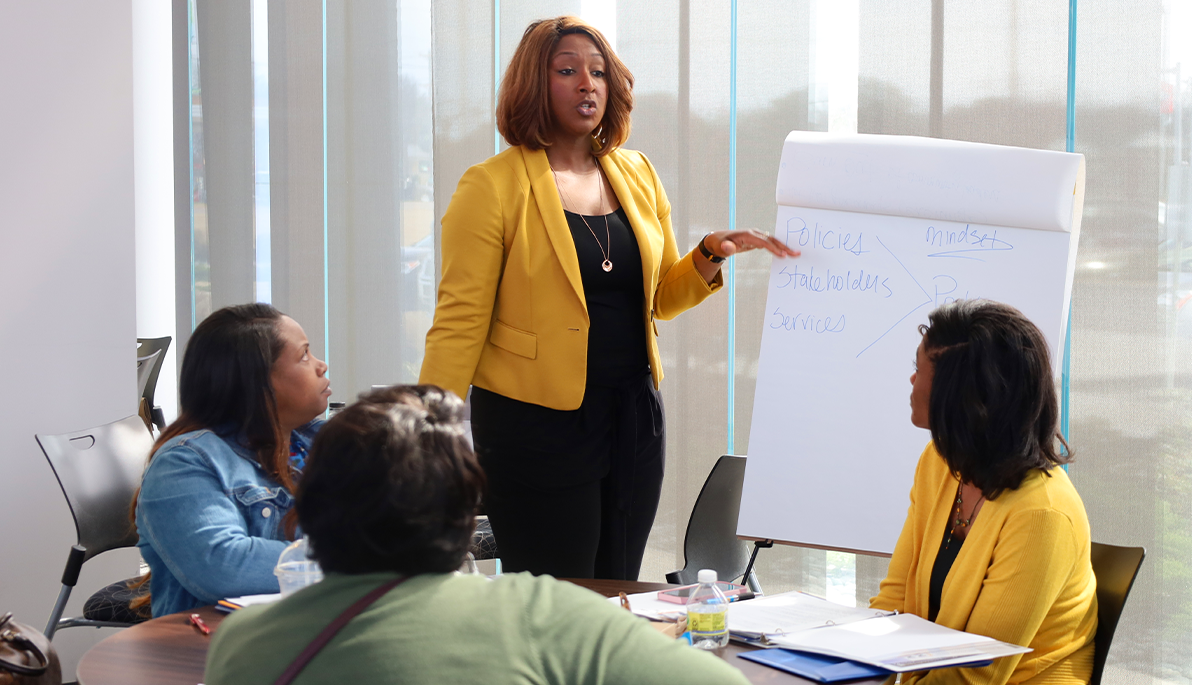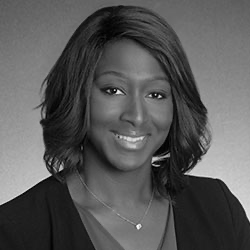
Faculty Profile: Brookshield Laurent

Title: Chairperson and Associate Professor
Department: Clinical Medicine
Joined New York Tech: 2012
Campus: Jonesboro
On a Mission to Heal
“NYITCOM students are not waiting for graduation day to get to work,” says Brookshield Laurent, D.O., chair of clinical medicine at the College of Osteopathic Medicine-Arkansas (NYITCOM-Arkansas). “Our students are brilliant, forward-thinking, and ready to bring healing into their communities even before they finish their degrees.”
Laurent, who moved to Arkansas in 2016 to become the chairperson of the department, is also the executive director for the Delta Population Health Institute, the community engagement arm of NYITCOM-Arkansas. With a mission to increase the physician workforce in the Mississippi Delta region, finding students who are committed to the community is of the utmost importance to the program and the region. “It’s well-known that there are significant health disparities in the Delta,” she says. “Because of the current challenges, including not enough physicians to provide care, it is essential that we collaborate with community members who are doing great work that will help them meet their goals.”
Originally from South Orange, New Jersey, Laurent was drawn to osteopathic medicine because of its hands-on, patient-centered approach. “Osteopathic medicine makes room to look at the way our lives are integrated,” she says. “It creates space for us to understand how our body, minds, and spirit interact with the environment and how it affects our health and well-being.” This approach is valuable when considering the health of individuals and the overall community, as NYITCOM is doing in the Delta region. “We are looking to drive larger health outcomes more than just helping individuals on case-by-case delivery. Osteopathic medicine gives you the tools to navigate how many components interact, taking into account a much larger picture.”
Through a collaboration between Southern Bancorp and Aaron E. Henry Community Health Services Center, Inc., Laurent is involved in a study to examine how poverty affects health outcomes. “People who are struggling week to week, paycheck to paycheck tend to be sicker and more affected in terms of mental health. We are looking at the health determinants affected by socioeconomic status and possible generational impacts of those effects,” she says. “By working with both a financial institution and a community center, it helps us, as medical professionals, to identify what interventions can be put in place, and what each stakeholder in this situation can do to influence health outcomes.”
Being patient-centered is characteristic of osteopathic training, and the partnerships NYITCOM-Arkansas has formed in the Delta allow students to enact the values they learn in real time. “We want our students to learn to listen radically to patients. We want them to think about what it looks like to have shared decision-making with patients. We are here because of the community’s need and the local leaders’ vision for their future. We were invited to partner with them, and we consider it an honor to do so.”









